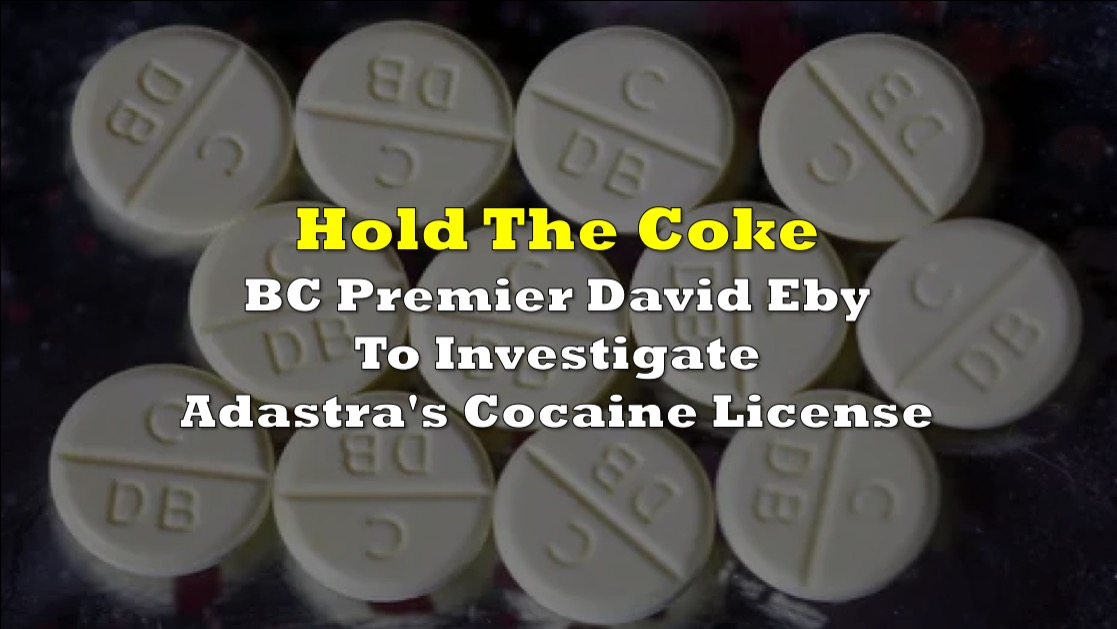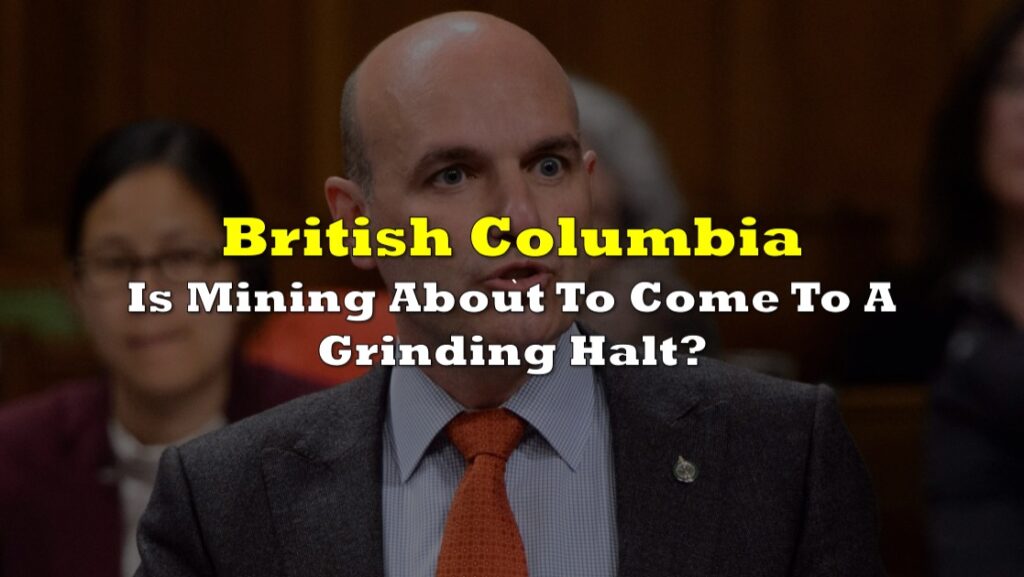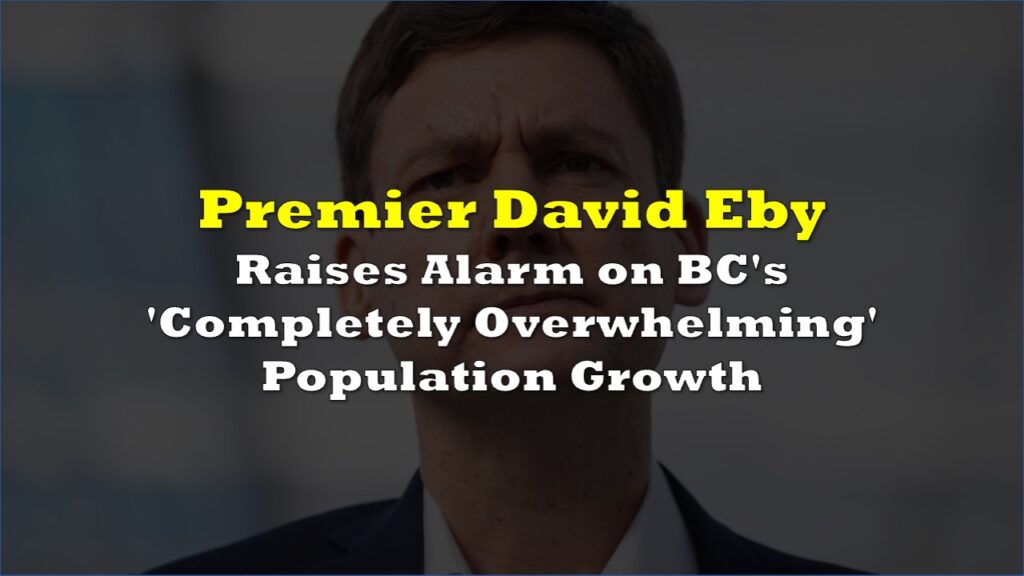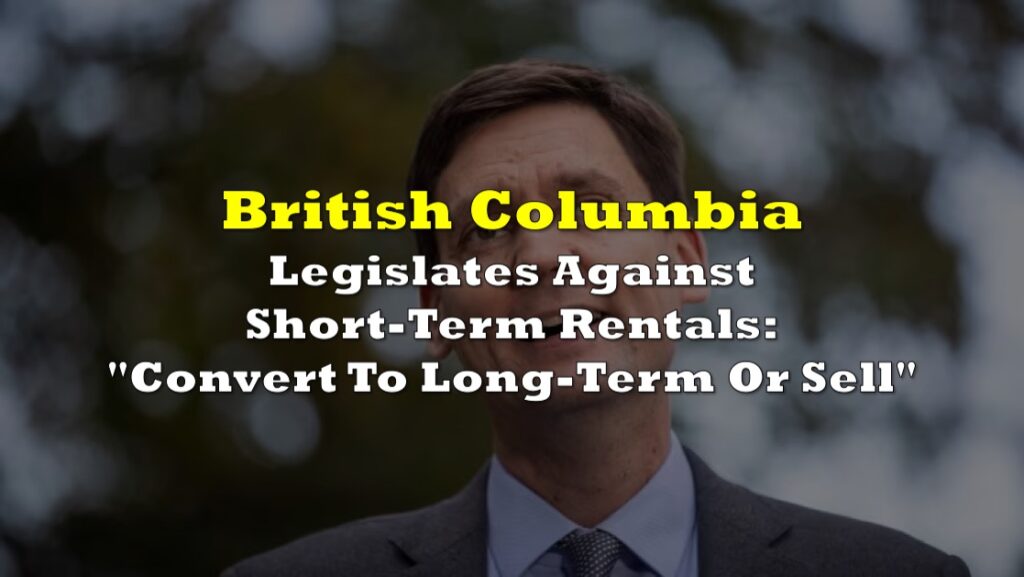It seems British Columbia Premier David Eby was one of the last people to know that the province he governs has a cannabis firm that’s already federally permitted to process and sell cocaine.
Langley-based Adastra Holdings (CSE: XTRX) recently announced that Health Canada approved Adastra Labs’ amendment to include cocaine as a substance that the company can lawfully possess, produce, sell, and distribute. The firm is allowed to work with up to 250 grams of cocaine and import coca leaves in order to produce and synthesize the drug as well.
When asked for his thoughts, Eby was “astonished” to hear the announcement.
“I understand that this company has indicated Health Canada has given them some kind of authorization. It is not part of our provincial plan,” the premier said. “If Heath Canada did in fact do this, they did it not only without engaging with the province, but they did it without notice to us.”
Eby added that his government will “get answers for British Columbians about this.”
Adults 18 years and older in British Columbia have a three-year exemption under the Controlled Drugs and Substances Act to possess up to 2.5 grams of opiates, cocaine, methamphetamine, MDMA, or some combination thereof between January 31, 2023, and January 31, 2026. This came effective after British Columbia became the first province in Canada to decriminalize the personal use of heroin, meth, ecstasy, and cocaine.
But Eby clarified that “producing and distributing cocaine is not part of the province’s decriminalization plan.”
Decriminalization
“(On Thursday) we had a very important discussion that should worry British Columbians, and that is a company issued a press release about how excited they are for the commercialization of the sale of cocaine in B.C.,” BC Liberal leader Kevin Falcon said.
Falcon discussed that his party’s comments on the decriminalization program “that the [New Democratic Party] is rushing head-long into” remains that “there is effective decriminalization for amounts of 2.5 grams or less.”
“But the guard rails put in place by the federal government were spelled out really clearly, [the BC NDP] has not fulfilled any of the requirements,” he added. “What is going on?”
Eby is the current leader of the British Columbia New Democratic Party.
Meanwhile, federal Conservative Party leader Pierre Poilievre castigated the “Trudeau government,” comparing getting a cocaine license as faster than getting a passport.
Meanwhile, the Trudeau government grants a permit to a corporation to make and sell cocaine.
— Pierre Poilievre (@PierrePoilievre) March 3, 2023
It took two months to get the license—faster than getting a passport!https://t.co/UwLCknItpD
B.C. Public Safety Minister Mike Farnworth clarified that the provincial government “would absolutely not be supporting the development and the wholesale distribution and legalization of cocaine in the province.”
“What we have is a policy in place that has been developed through a considerable amount of work with Health Canada, with addiction specialists, with health professionals, and with chiefs of police to ensure that we can have safer supply for those who are addicted,” the public safety minister added. “This is not and never has been about legalizing cocaine or encouraging it for commercial distribution.”
In their statement announcing the cocaine license, Adastra CEO Michael Forbes said the firm “will evaluate how the commercialization of this substance fits in with [their] business model at Adastra in an effort to position [themselves] to support the demand for a safe supply of cocaine.”
The opposition has long contended that the emphasis should instead be on treatment and recovery.
The licensing of facilities such as Adastra’ Labs, however, remains a federal responsibility.
Information for this briefing was found via Global News, City News, Vancouver news, and the sources mentioned. The author has no securities or affiliations related to this organization. Not a recommendation to buy or sell. Always do additional research and consult a professional before purchasing a security. The author holds no licenses.









